
Gastric Bypass Surgery and Pregnancy: What You Need to Know
05 May, 2023
Transform Your Beauty, Boost Your Confidence
Find the right cosmetic procedure for your needs.

We specialize in a wide range of cosmetic procedures

Gastrointestinal bypass surgery, also recognized as Roux-en-Y gastrointestinal bypass, is a weight-loss operation that involves constructing a minute stomach sac and diverting the small intestine to that sac. This technique has facilitated numerous individuals in shedding a substantial amount of mass and enhancing their general well-being. However, if you are thinking about conceiving after receiving gastrointestinal bypass surgery, there are some critical factors you must be aware of. In this composition, we will scrutinize the consequences of gastrointestinal bypass surgery on pregnancy, the potential hazards implicated, and what you can execute to have a fit pregnancy after the surgery.
Introduction
Weight reduction is frequently accomplished through surgical methods, and one such common procedure is gastric bypass surgery. This process involves modifying the digestive system to decrease the amount of food that can be absorbed by the body. Gastric bypass surgery has the potential to be life-changing for those suffering from obesity by aiding in weight loss, enhancing overall health, and reducing the likelihood of obesity-related diseases. However, women who have had gastric bypass surgery and are contemplating pregnancy must take several factors into consideration. In this article, we will scrutinize the advantages and drawbacks of pregnancy following gastric bypass surgery and offer counsel and suggestions for those who are pondering this alternative.
Understanding Gastric Bypass Surgery
Gastric bypass surgery is a highly intricate medical intervention that involves the creation of a minute stomach pouch and the rerouting of the small intestine to said pouch. By doing so, a shrunken stomach and a reduced small intestine are achieved, allowing patients to feel full in a shorter time span and to absorb fewer calories. This intervention can be performed through either open surgery or laparoscopic surgery, the latter being less invasive in nature.
What is Gastric Bypass Surgery?
Gastric bypass surgery is a procedure that involves creating a small pouch at the top of the stomach and connecting it directly to the small intestine. This reduces the size of the stomach and bypasses part of the small intestine, which limits the amount of food the body can absorb. The procedure is usually done laparoscopically, which involves making small incisions in the abdomen and using a camera and instruments to perform the surgery. There are several different types of gastric bypass surgery, including Roux-en-Y gastric bypass, mini gastric bypass, and gastric sleeve with loop duodenal switch.
How Gastric Bypass Surgery Works
During the surgical procedure of gastric bypass, the adept surgeon creates a diminutive pouch at the zenith of the stomach via a surgical stapling mechanism. This minuscule sac is only comparable to the magnitude of an ovum and has the capacity to contain a limited portion of edibles. The surgeon then connects the small intestine to the novel sac, circumventing the remaining stomach and the superior segment of the small intestine. This alternate pathway of the digestive system diminishes the quantity of victuals that the patient is capable of ingesting and the quantum of calories they assimilate.
Pregnancy After Gastric Bypass Surgery
Most popular procedures in
Laparoscopic Cystect
Upto 80% off
90% Rated
Satisfactory
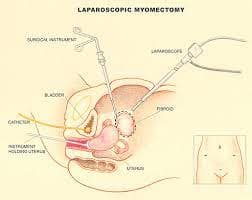
Laparoscopic Myomect
Upto 80% off
90% Rated
Satisfactory
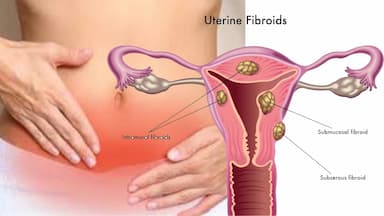
LAVH
Upto 80% off
90% Rated
Satisfactory
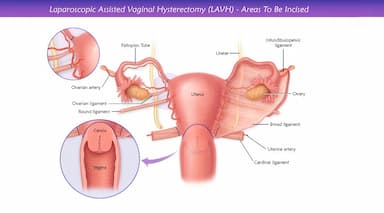
NOTE
Upto 80% off
90% Rated
Satisfactory
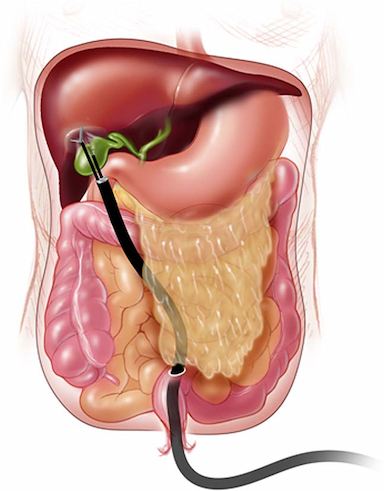
CABG
Upto 80% off
90% Rated
Satisfactory
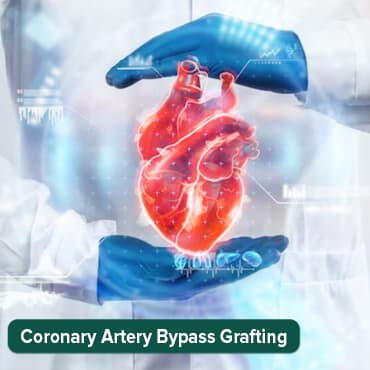
One of the primary benefits of gastric bypass surgery is weight loss, which can help to improve overall health and reduce the risk of obesity-related diseases.
However, weight loss can also have an impact on fertility, menstrual cycles, and pregnancy. In general, pregnancy after gastric bypass surgery is safe and can be successful, but there are some important things to consider.
First, it is important to wait until the body has fully healed from surgery before becoming pregnant. This usually takes about 18-24 months, depending on the individual and the type of surgery. During this time, it is important to follow a healthy diet and exercise plan to support weight loss and promote overall health.
Second, pregnancy can affect weight loss after gastric bypass surgery. Many women experience a plateau or temporary weight gain during pregnancy, and it may take some time to return to the weight loss trajectory after giving birth. However, with proper nutrition and support, it is possible to maintain a healthy weight during pregnancy and achieve weight loss goals after delivery.
Third, proper nutrition and supplementation are crucial during pregnancy after gastric bypass surgery. Women who have undergone gastric bypass surgery may be at risk for nutrient deficiencies, including iron, calcium, and vitamin D. It is important to work with a healthcare provider and a registered dietitian to ensure that nutritional needs are met during pregnancy.
Potential Complications
While pregnancy after gastric bypass surgery is generally safe, there are some potential complications that women should be aware of. These may include:
- Increased risk of miscarriage or preterm delivery
- Increased risk of gestational diabetes or hypertension
- Nutritional deficiencies in the mother, which can affect fetal growth and development
- Increased risk of birth defects or fetal growth restriction
However, with proper monitoring and care, many of these complications can be managed or treated. Regular prenatal visits and testing are important for identifying any potential issues early and ensuring that both mother and baby receive the best possible care.
Preparing for Pregnancy After Gastric Bypass Surgery
Preparing for pregnancy after gastric bypass surgery requires a multidisciplinary approach, involving a team of healthcare providers, including a gynaecologist, a nutritionist, and a surgeon. This team can help to assess the individual's readiness for pregnancy, identify any potential risks, and develop a plan for managing these risks.
It is important to discuss pregnancy plans with a healthcare provider before trying to conceive. This can help to identify any potential risks and ensure that the body is ready for pregnancy. Women who have undergone gastric bypass surgery may require additional monitoring and testing during pregnancy, including ultrasound, blood tests, and foetal monitoring.
In addition to medical care, lifestyle changes are also important for preparing for pregnancy after gastric bypass surgery. This may include maintaining a healthy weight, eating a balanced diet, getting regular exercise, and avoiding alcohol and tobacco. It may also be helpful to join a support group or seek counselling to manage the emotional and physical challenges of pregnancy after surgery.
Benefits of Pregnancy After Gastric Bypass Surgery
Despite the plausible hazards and intricacies, pregnancy subsequent to gastric bypass surgery can entail significant benefits. For instance, women who have undergone gastric bypass surgery may be at a diminished hazard of contracting gestational diabetes, preeclampsia, and other pregnancy-linked entanglements. They may also experience greater ease in regulating weight gain during pregnancy and sustaining a healthy weight following delivery.
Furthermore, scrutinizes have disclosed that infants delivered by mothers who have undergone gastric bypass surgery may be at a reduced risk of developing obesity and correlated ailments later in life. This could be attributed to alterations in the mother's metabolism and microbiome, along with modifications in the foetal surroundings.
Risks to the Foetus
While pregnancy after gastric bypass surgery is generally safe for the mother, there are some potential risks to the foetus that should be considered. These may include:
- Increased risk of neural tube defects
- Increased risk of small for gestational age (SGA) infants
- Increased risk of foetal growth restriction
- Increased risk of preterm birth
- Increased risk of neonatal hypoglycemia
Breastfeeding After Gastric Bypass Surgery
Breastfeeding is an important way to provide nutrition and bonding for infants, but it can be challenging for women who have undergone gastric bypass surgery. Surgery can affect milk production and nutrient content, and women may need to supplement with formula or other sources of nutrition.
It is important to discuss breastfeeding plans with a healthcare provider before delivery. Women who have undergone gastric bypass surgery may require additional monitoring and support to ensure that they are able to breastfeed safely and effectively.
Lifestyle Changes and Support
Lifestyle changes and support are important for women who have undergone gastric bypass surgery and are considering pregnancy. This may include changes to diet and exercise, as well as counselling or support groups to manage the emotional and physical challenges of pregnancy.
It is important to work with a healthcare provider and a registered dietitian to develop a healthy diet and exercise plan that supports both weight loss and pregnancy. Counselling or support groups can also be helpful for managing stress and anxiety, as well as providing education and resources for pregnancy after surgery.
Benefits of Gastric Bypass Surgery
Gastric bypass surgery has many benefits for obese patients who are struggling with weight loss. Some of the benefits include:
Significant and sustained weight loss
- Improvement or resolution of obesity-related health conditions such as type 2 diabetes,
- high blood pressure, and sleep apnea
- Improved quality of life and psychological well-being
- Increased life expectancy
Side Effects of Gastric Bypass Surgery
- Like any surgical procedure, gastric bypass surgery comes with some potential side effects and complications. These can include:
- Pain and discomfort
- Infection
- Bleeding
- Blood clots
- Dumping syndrome, which can cause diarrhoea, nausea, and vomiting
- Nutritional
- Nutritional deficiencies
After gastric bypass surgery, patients may experience nutritional deficiencies due to the reduced absorption of nutrients in the small intestine. This can include deficiencies in iron, calcium, vitamin D, vitamin B12, and folate. These deficiencies can cause anaemia, osteoporosis, and other health problems. Pregnant women who have had gastric bypass surgery are at higher risk for these nutritional deficiencies, which can affect the development of the foetus.
Dumping Syndrome
Dumping syndrome is a common side effect of gastric bypass surgery. It occurs when food moves too quickly from the stomach to the small intestine. Symptoms can include nausea, vomiting, diarrhoea, abdominal cramps, and dizziness. These symptoms can be particularly problematic during pregnancy, when dehydration can be dangerous for both the mother and the foetus.
Gestational Diabetes
Pregnancy after gastric bypass surgery can increase the risk of developing gestational diabetes, which is a type of diabetes that develops during pregnancy. Women with gestational diabetes have high blood sugar levels that can affect the health of the foetus. Gestational diabetes can be managed with diet and exercise, but some women may require insulin therapy to control their blood sugar levels.
High Blood Pressure
Pregnancy after gastric bypass surgery can also increase the risk of developing high blood pressure, also known as hypertension. High blood pressure can cause complications during pregnancy, including pre-eclampsia, a serious condition that can affect the health of the mother and the foetus.
Preterm Labour
Women who have had gastric bypass surgery may be at higher risk for preterm labour, which is when labour starts before 37 weeks of pregnancy. Preterm labour can be caused by a number of factors, including infections, stress, and complications with the placenta. Women who have had gastric bypass surgery may also be at higher risk for preterm premature rupture of membranes (PPROM), which is when the membranes that surround the foetus break before labour starts.
How can we help with the treatment?
If you're on the lookout for treatment in India, Thailand, Singapore, Malaysia, UAE, and Turkey, let Healthtrip be your compass. We will serve as your guide throughout your medical treatment. We'll be by your side, in person, even before your medical journey commences. The following will be provided to you:
- Connect with renowned doctors from a network spanning 35+ countries and access the world's largest health travel platform.
- Collaboration with 335+ top hospitals , including Fortis and Medanta.
- Comprehensive treatments from Neuro to Cardiac to Transplants, Aesthetics, and Wellness.
- Post-treatment care and assistance.
- Teleconsultations at $1/minute with leading surgeons.
- Trusted by 44,000+ patients for appointments, travel, visa, and forex assistance.
- Access top treatments and packages, such as Angiograms and many more.
- Gain insights from genuine patient experiences and testimonials.
- Stay updated with our medical blog.
- 24/7 unwavering support, from hospital formalities to travel arrangements or emergencies.
- Pre-scheduled specialist appointments.
- Prompt emergency assistance, ensuring safety.
Our success stories
Conclusion
Pregnancy after gastric bypass surgery can be challenging, but with proper planning and monitoring, many women are able to have successful pregnancies. It is important to talk to your doctor about the risks and complications of pregnancy after gastric bypass surgery, and to follow a healthy diet and exercise plan to ensure the health of both the mother and the foetus.
Wellness Treatment
Give yourself the time to relax
Lowest Prices Guaranteed!

Lowest Prices Guaranteed!



